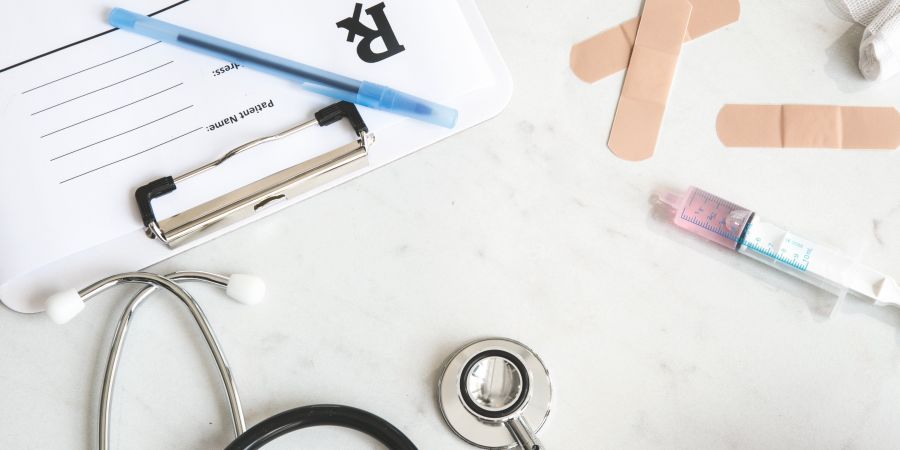

Similarly as different enterprises are moving back some shopper well disposed changes made from the get-go in the pandemic — think void center seats on planes — along these lines, as well, are wellbeing guarantors.
Numerous intentionally postponed all deductibles, copayments and different expenses for protected patients who became sick with Covid-19 and required emergency clinic care, specialist visits, prescriptions or other therapy.
Saving those expenses was a decent move from an advertising point of view. The business got credit for aiding clients during difficult stretches. What's more, it had political and monetary advantages for back up plans, as well.
In any case, nothing keeps going forever.
Beginning toward the finish of a year ago — and proceeding into the spring — a developing number of safety net providers are unobtrusively finishing those charge waivers for Covid treatment on a few or all approaches.
"With regards to treatment, an ever increasing number of buyers will track down that the typical course of deductibles, copayments and coinsurance will apply," said Sabrina Corlette, research educator and co-overseer of the Center on Health Insurance Reforms at Georgetown University.
All things considered, "fortunately immunizations and most Covid tests should in any case be free," added Corlette.
That is on the grounds that government law expects back up plans to forgo costs for Covid testing and immunization.
Direction gave from the get-go in President Joe Biden's term supported that Trump organization rule about forgoing cost sharing for testing and said it applies even in circumstances in which an asymptomatic individual needs a test previously, say, visiting a family member.
Yet, treatment is extraordinary.
Back up plans deliberately deferred those expenses, so they can choose when to restore them.
Without a doubt, the underlying advance not to charge treatment expenses may have acquired any exertion by the national government to order it, said Cynthia Cox, a VP at KFF and chief for its program on the Affordable Care Act.
In an examination delivered in November, analysts found about 88% of individuals covered by protection plans — those purchased by people and some gathering plans offered by businesses — had arrangements that deferred such installments sooner or later during the pandemic, said Cox, a co-creator. Be that as it may, a considerable lot of those waivers were relied upon to lapse before the year's over or early this year.
Some did.
Song of praise, for instance, halted them toward the finish of January. UnitedHealth, one more of the country's biggest guarantors, started moving back waivers in the fall, wrapping up before the finish of March. Sans deductible inpatient treatment for Covid through Aetna terminated Feb. 28.
A couple of guarantors keep on doing without patient expense partaking in certain sorts of arrangements. Humana, for instance, has left the expense sharing waiver set up for Medicare Advantage individuals, however dropped it Jan. 1 for those in work based gathering plans.
Not all are rolling out the improvements.
For instance, Premera Blue Cross in Washington and Sharp Health Plan in California have expanded treatment cost waivers through June. Kaiser Permanente said it is saving its program set up for individuals determined to have Covid and has not set an end date. In the interim, UPMC in Pittsburgh intended to keep on postponing all copayments and deductibles for in-network treatment through April 20.
What everything implies
Waivers may bring about little investment funds for individuals with gentle instances of Covid that are treated at home. Yet, the investment funds for patients who fall truly sick and end up in the medical clinic could be generous.
Trauma center visits and hospitalization are costly, and many protected patients should pay a bit of those expenses through yearly deductibles before full inclusion kicks in.
Deductibles have been on the ascent for quite a long time. Single-inclusion deductibles for individuals who work for huge businesses normal $1,418, while those for representatives of little firms normal $2,295, as indicated by a review of managers by KFF. (KHN is an editorially free program of KFF.)
Yearly deductibles for Affordable Care Act plans are for the most part higher, contingent upon the arrangement type.
Related Stories
Early monoclonal counter acting agent treatments useful for COVID-19, discovers study
Specialists evaluate SARS-CoV-2 transmission hazard during air travel
Study gives an account of wellbeing of COVID-19 mRNA immunizations in pregnancy
The two sorts of inclusion likewise incorporate copayments, which are level dollar sums, and regularly coinsurance, which is a level of the expense of office visits, emergency clinic stays and doctor prescribed medications.
Finishing the waivers for therapy "is serious in the event that you become ill," said Robert Laszewski, a protection industry advisor in Maryland. "And afterward you discover you need to pay $5,000 cash based that your cousin didn't two months prior."
Expenses and advantages
In any case, those patient charges address just a cut of the general expense of really focusing on a hospitalized patient with Covid.
While it assisted patients' with changing out stream, back up plans saw different sorts of advantages.
For a certain something, guarantors perceived from the beginning that patients — confronting stay-at-home requests and different limitations — were staying away from clinical consideration in large numbers, driving down what back up plans needed to fork out for care.
"I think they were acknowledging they would report uncommonly great benefits since they could see usage dropping like a stone," said Laszewski. "Specialists, medical clinics, eateries and every other person were in hot water. Along these lines, it was acceptable governmental issues to defer copays and deductibles."
Other than producing altruism, guarantors may profit in another way.
Under the ACA, guarantors are needed to spend at any rate 80% of their exceptional income on direct medical services, as opposed to on promoting and organization. (Enormous gathering plans should burn through 85%.)
By deferring those expenses, back up plans' own spending went up a piece, possibly helping balance some portion of what are generally anticipated to be heavy refunds this late spring. That is on the grounds that guarantors whose spending on direct clinical consideration misses the mark regarding the ACA's edge should give refunds by Aug. 1 to the people or bosses who bought the plans.
A record $2.5 billion was discounted for strategies as a result in 2019, with the normal refund per individual coming in at about $219.
Realizing their spending was falling during the pandemic aided fuel choices to defer patient copayments for treatment, since safety net providers knew "they would need to give this cash back in some structure due to the discounts," Cox said.
It's a mishmash for purchasers.
"In the event that they totally balance the refunds through deferring cost sharing, it rigorously benefits just those with Covid who required critical treatment," noted Cox. "Yet, on the off chance that they issue refunds, there's more expansive circulation."
Indeed, even with that, safety net providers can hope to send a ton back in refunds this fall.
In a report out this week, KFF assessed that back up plans may owe $2.1 billion in refunds for a year ago's arrangements, the second-most elevated sum gave under the ACA. Under the law, refund sums depend on three years of monetary information and benefits. Last numbers aren't normal until some other time in the year.
The discounts "are likely determined to some extent by smothered medical care usage during the Covid-19 pandemic," the report says.
In any case, business analyst Joe Antos at the American Enterprise Institute says forgoing the copays and deductibles may help altruism in the public eye more than refunds. "It's a local area advantage they could get some acknowledgment for," said Antos, though numerous policyholders who get a little discount check may simply cash it and "it doesn't affect how they consider anything."


